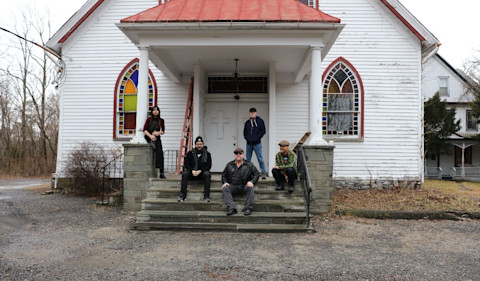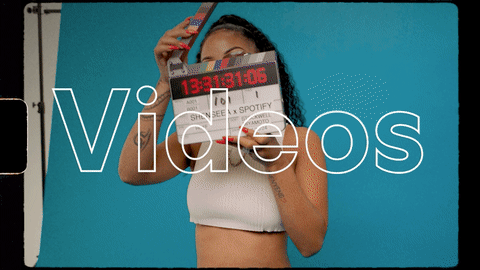Stories
Booking Agents: How to Get ‘Em and Why

Tips from the pros on how you can find the right agent, and what to expect from them when you do.
“So you want to be a rock n’ roll star?” asks Roger McGuinn in the first lines of The Byrds’ anthem of the same name. He goes on to offer several suggestions for achieving that goal: 1. Get a guitar; 2. Learn how to play it; 3. Get some tight pants. The song’s second verse begins with this tidy rhyme: “Now it’s time to go downtown/ Where the agent man won’t let you down.” Great! But who is this “agent”? What does one do, exactly? And where do you find one?
“I think Entourage really messed up people’s perception of what an agent is,” says Andrew Morgan of Ground Control Touring. He gives this straightforward account of his role: “I work with artists and their team as a strategic partner in an artist’s touring career.” This means booking any manner of live performances for his clients—who include Sleep, Angel Olsen, and the Welcome to Night Vale podcast—arranging everything from their earliest laps around the country to headline tours to festival dates to private events and even speaking engagements.
Ali Hedrick, who represents artists like Sufjan Stevens and Car Seat Headrest for the Paradigm Agency, explains that in addition to planning tours and securing venues, she “negotiates ticket price, what [my artists] are being paid, the other acts on the bill, the merchandise rates. I review the budgets for the entire tour—marketing, hospitality, sound, lights, stagehands, everything.”
While the reality of an agent’s job may be less glamorous than the fictional life of Entourage’s Ari Gold, their role is no less critical to an artist’s success. Below are some guidelines to help you get the attention of one who will make the most of your potential.
Think Globally. Act Locally “You need to know all your local venues,” says Joshua Rittenhouse of APA Agency, whose clients include Wale and Bryce Vine. “Start reaching out and getting on their radar. You don’t need an agent to get a show in your city.”
Morgan, now based in Los Angeles after 12 years as an agent in Chicago, agrees. “Keep playing shows locally and make relationships with other bands—[especially] touring bands that are coming through your city. [A touring] band is playing at the Empty Bottle? I’m going to try and get on that show. I’m going to hit them up on Twitter and say, ‘Hey I like your band a lot. I’d like to open your show.’”
And don’t forget the local club owner or promoter. Wilson Zheng works for High Road Touring and books, among others, Mitski and Soccer Mommy. Zheng says, “When I get sent music from [local] promoters, I pay attention. They have music in their club five to seven nights a week. They see a lot of music. So when a promoter from Kansas City or Seattle says, ‘Pay attention to this,’ I trust them.”
Gig. A Lot Perhaps it goes without saying that a developing artist should seize every opportunity to play in front of an audience, but it should be noted that performing is a skill separate from writing or recording music. Chances are, you won’t be ready to take your show on the road from the get-go.
“You can't evaluate a band’s live performance until they have played over 100 shows,” Zheng says. “It's important to be active and play a lot of shows and get better live. Ultimately, even if you make a really good record, if you can't play live people aren't going to come back and see you.”
And lest you begin to think that making great recordings means that you’re a great live act, Morgan puts it this way: “We don’t book records, we book shows.”
Glamour and All, It’s Still a Job It’s important to know that being a working artist is just that: work. It’s a job.
Zheng stresses that you have to treat every gig like it's important. “Don’t get drunk before the show. If you want to do this professionally, it's a job,” he says. “Ninety percent of the time a band is on tour, they're not actually playing a show. They’re traveling or they're sound-checking. You have to treat it like it's a day job and you have to care.”
Even then, touring can be a taxing experience, especially for a developing artist on tour supporting a larger act. Zheng continues, “Support budgets are still generally $200 to $500 [per show]. If you're lucky you can break even or make a little bit of money and get fed in the venues. It's hard work, and it's an investment into a band’s career. Maybe some of [the headliner’s] fans will translate into being your fans, or you’ll sell some merchandise.”
Hedrick believes that you shouldn’t consider touring as a legitimate means of income until you’re consistently selling out venues in your hometown. “This means people are really excited to see you,” she says. “This is not your friends and family showing up. These are strangers hearing about your music and coming to your show.”
Build a Network Hedrick explains, “Most of the artists I find, honestly, come from a relationship that I already have with a manager or label. They say ‘Hey, I just started working with this new artist. What do you think?’” If your network is small now, that’s ok. Everyone starts somewhere, including agents. “There’s an analog in my mind,” says Morgan. “A developing agent relies on developing artists to develop their own career. Early on there’s going to be a lot of agents going after artists versus being approached.” Hedrick suggests that the best way to network is to do your homework. “Research the agent that you're emailing,” she says. “Look at their roster and see if there's any other artists or managers or record labels or anyone that you know that already works with that agent, and then reach out to that person and ask them make an introduction for you. That goes a very long way. When someone that I already work with introduces me to an artist I'm going to listen to it 100%—every single time.”
Pimp That Profile Rittenhouse advises artists to care about how they present themselves online. “The main thing is making sure that everything looks on-brand and professional. If it’s sloppy, it doesn't make as much of an impact.”
Videos of live performances—the higher the quality the better—are especially important. “Nothing ever replaces going to see a band live,” says Morgan. “Meeting them, seeing how a crowd reacts, seeing their banter between sets.” However, he laments, “the speed with which a band who has press attention gets their team sorted is very, very fast. Sometimes you just don't have time to go see them or have [a trusted colleague] see them. You have to decide quickly or you're going to [miss an opportunity].”
Rittenhouse admits, “Honestly, 75% of the time I’ve never seen an artist live before I work with them, which is crazy, but here’s the thing: Everything happens so fast now. Back in the day, you’d have to see an artist before you signed them. But [now] an artist has a moment online and they can already sell 1,000 tickets before they can play live.”
—Nathan Baker
Spotify for Artists helps you to develop the fanbase you need to reach your goals.
video
How Julia Wolf Made It



